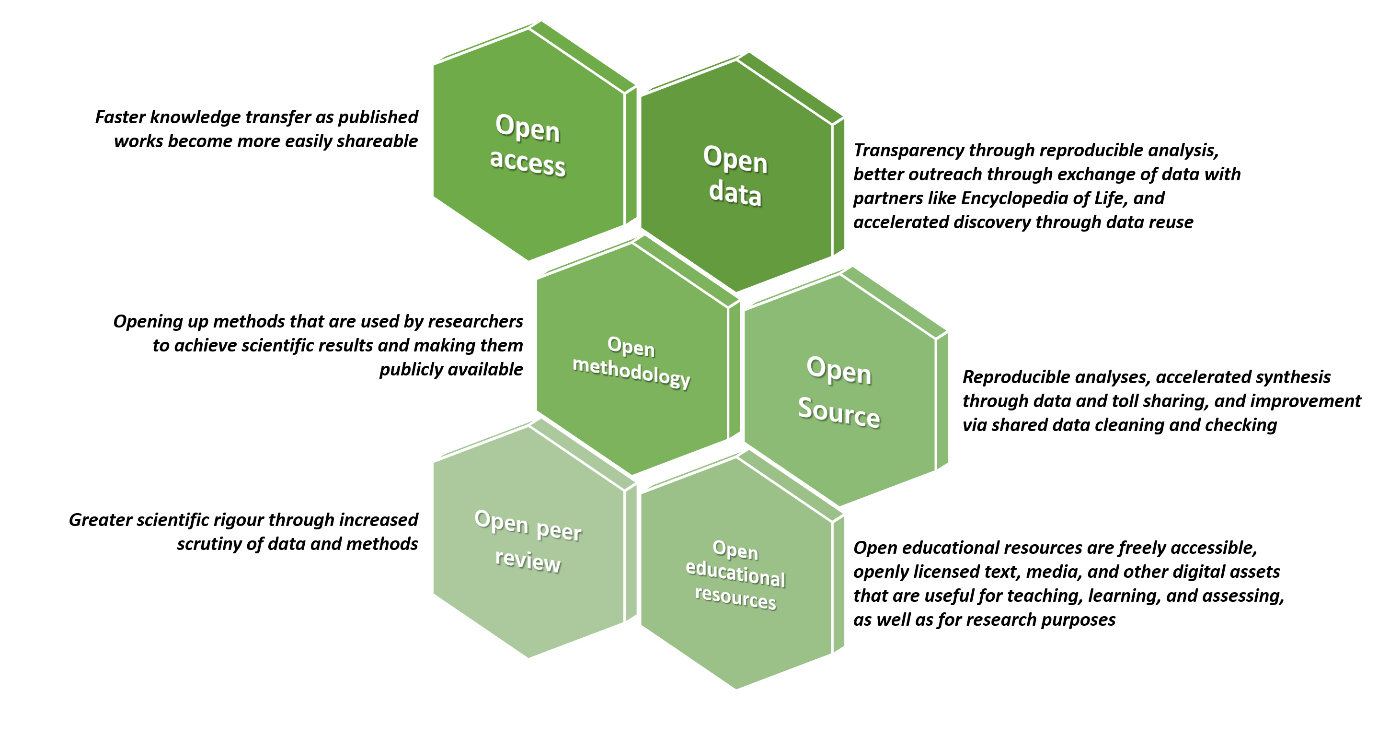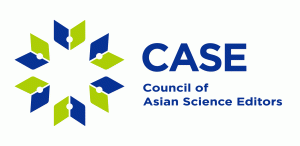Open Science and the Role of the Editor

Da-Jeong Park
Seoul National University

Cheol-Heui Yun
Seoul National University
Chair of Publication Ethics, Korean Council of Science Editors
Secretary General, Council of Asian Science Editors
Over the past few years, open science has had a far-reaching impact on the flow of academic and publishing industries in parallel to the digital revolution. In addition, fairness, objective validity, honesty, and transparency for the practice of open science are required by authors. In future, editors should actively respond to industrial changes based on the six basic principles of open science, which are now seemingly more influential in academic journals and publishers.
Open science
Open science is to practice (1) openness, (2) transparency, (3) knowledge sharing, (4) fairness, and (5) justice, while providing access to information and data obtained through conducting science without barriers. Open science consists of six basic principles: open access, open methodology, open source, open data, open peer review, and open educational resources.1
Figure 1. The six principles of open science based on UNESCO presentation given on 17 February, 20212
Open access works in such a way that the information producer becomes the user, and the user becomes the producer again. In general, authors of academic journals do not pursue profits through publication, although they can benefit from exposing an article earlier and on a wider scale. Furthermore, readers have the advantage of being able to dissolve economic barriers, such as license fees and access costs. In addition, there is no need for authors to transfer copyrights to publishers and journals, ensuring permanent access to academic articles. There are two open access methods: publication through academic journals or digital methods that generate, collect, manage, and distribute digital knowledge information. To achieve such open access success, governments/public institutions must form relevant management bodies and train specialists. In addition, publishers/journals should embrace related policies and make efforts such as building systems for researchers to deposit and submit their research products.
Open methodology means that other research scientists can implement the relevant research processes and results. The description and explanation of the research method is an important element of the research process, and other research scientists must be able to reproduce the method and relevant results. One of the most reliable ways to implement open methodology is through the use of open source, which aims to make results understandable and reproducible. Open data refers to the disclosure of default values and the results generated throughout the course of scientific research. In other words, anyone who wants to have it can use it freely without any restrictions. Open peer review discloses the identities of authors and reviewers to each other at any time during the peer review and publication process. In this way, the editorial decision letter, the reviewers’ criticisms and comments, and the author’s response to the journal are all made available when the article is published.
Open science is expected to have a significant impact on the policies of academic journals in the near future. Therefore, this article examines the roles and responsibilities of editors based on the aforementioned six basic principles of open science, together with editors’ conflicts of interest.
The Editor’s Role and Responsibilities
Editors are responsible for treating authors fairly, objectively, and transparently, and journals must clearly state policies regarding any conflicts of interest between editors and authors.3 The authors’ work must be kept confidential, and policies dealing with ethical issues that occur during the peer-review process should be routinely reviewed by journals and publishers. To do this effectively, the editor can ask the author to clarify funding sources, the approval of a study by appropriate committees, clarify that the animals used are correctly treated, etc.
Additionally, editors can request that authors comply with editorial policies: matters applicable to editorial policies such as a copy of the other manuscript that has been submitted or scheduled to be published, where the supplementary data was stored, permission from the original author of the copyright-related figure(s), and the contents of the license agreement. The editor is also responsible for choosing the referee (peer reviewer), whose major field should be known and relevant. An editor should not continuously and heavily use a specific referee, even if he/she is very good at reviewing the manuscript. Furthermore, journals must be organized in such a way that submitted papers are kept confidential. In this regard, it is necessary to prevent the editor and reviewer from plagiarizing the contents of a submitted paper or utilizing the results and facts learned during the review process before publishing the paper.
Editors’ conflict of interest
In publishing, conflicts of interest can be defined as competing interests and conditions that can bias editorial decisions. Personal, political, financial, academic, or religious considerations can affect the objectivity of a manuscript.
A financial conflict occurs when an individual or organization can make a financial profit by deciding to publish or reject a manuscript. Financial conflicts of interest include salaries, company subsidies, honors, and intellectual property rights (e.g. patents, royalties, and copyrights).
Here are some examples of potential direct and indirect financial conflicts; In the direct case one example is positively evaluating a paper because the editor, author, or reviewer holds a stake in the company that manufactures the product or is conducting research related to a particular commercial product. An indirect case would be when commercialization is successful as a result of favorably reviewing a manuscript, which leads a family member of the reviewer or editor being hired by the organization as a reward.
Other non-monetary contradictions of interest also need to be clarified. This includes personal, political, academic, and religious disputes. One such example would be when a reviewer who evaluates a manuscript with results similar to those prepared for publication by the reviewer postpones the review reports until his or her manuscript is approved.
Certain ways to resolve the aforementioned conflicts of interest are as follows: editors may require authors to identify the organizations that provide research support and explain the roles they play in the research. The authors must disclose all personal and financial relationships that may arise with the manufacturer of the products described in the article or the manufacturer of competing products. For example, some journals do not allow the submission of manuscripts of research that were financially supported by commercial organizations related to manufacturing. Many journals follow the ICMJE recommendations to keep any conflicts of interest that arise during the peer review process confidential.
Collectively, editors may have to quickly adapt to the changing academic and publishing societies within open science and the digital revolution, and to fulfil their roles and responsibilities including the disclosure of conflicts of interest. Furthermore, in order to realize a fair publishing industry in the future, governments/public institutions must also form related management organizations to support the activities of research scientists and to improve international competitiveness.
References
1. Open science. n.d. https://en.wikipedia.org/wiki/Open_science [last checked on Nov 25, 2021]
2. UNESCO Open Science Advisory Committee. Towards a UNESCO Recommendation on Open Science: 5th meeting of the UNESCO Open Science Advisory Committee, 17 February 2021. https://en.unesco.org/sites/default/files/5th_advisory_committee_report.pdf
3. Flanagin, Annette, Frey, Tracy, Christiansen, Stacy L, AMA Manual of Style Committee. Updated Guidance on the Reporting of Race and Ethnicity in Medical and Science Journals. JAMA. 2021;326(7):621-627. doi: 10.1001/jama.2021.13304
_______________________________________________
a The ICMJE, International Committee of Medical Journal Editors, is a small group of general medical journal editors and representatives of selected related organizations who work together to improve the quality of medical science and its reporting.
